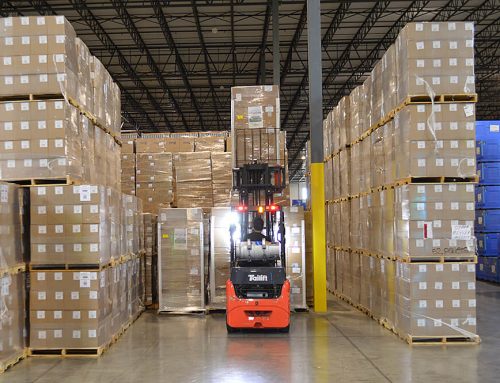Mexico is rapidly emerging as a global export powerhouse, capitalizing on its abundant natural resources, skilled workforce, and strategic trade agreements. In 2022, Mexico’s total exports amounted to a staggering US$549 billion, securing its position as the 10th largest exporter globally. Mexico’s top five exports position the country as a key player in global trade. Let’s dig into its primary exports and how they contribute to its economy.

The United States is Mexico’s primary trade partner, and US$294 billion of Mexican-made goods enter the country annually.
Per the Office of the United States Trade Representative:
“U.S. goods and services trade with Mexico totaled an estimated $855.1 billion in 2022. Exports were $362.0 billion; imports were $493.1 billion.”
Electronics and Machinery:
MX$3.95 trillion | US$198 billion
Mexico is a key player in the global electronics and machinery market, acting as a manufacturing hub for North and South America. Tech giants like Samsung, Sony, and LG have set up manufacturing plants in Mexico to produce electronics, such as TVs, smartphones, and home appliances. The country’s well-established supply chains and infrastructure make it efficient for companies to assemble and export products quickly. Along with electronics, Mexico also exports machinery used in different industries like automotive and construction.
Vehicles and Parts:
MX$2.3 trillion | US$115.6 billion
Mexico is one of the world’s leading producers and exporters of cars and vehicle parts. Global automakers like General Motors, Toyota, and Volkswagen have established large-scale production plants in the country, drawn by lower production costs and a skilled labor force. The United States, one of the largest car markets, is Mexico's biggest trading partner, making the country a prime location for exporting cars. Mexico also benefits from free trade agreements that reduce tariffs on its vehicle exports, making it more competitive in the global market.
Mineral and Metal Products:
MX$1.59 trillion | US$79.9 billion
Mexico is rich in natural resources and is a leading exporter of minerals and metals like silver, copper, and gold. As the world's largest producer of silver, Mexico plays a key role in industries such as construction and electronics. Mining is vital to the country's economy, supported by government policies that encourage investment. In addition to precious metals, Mexico exports refined metals like steel, which are used in cars, airplanes, and construction projects.
Medical Instruments and Equipment:
MX$388.4 billion | US$19.5 billion
Mexico is becoming a major player in exporting medical instruments and equipment. Major medical companies have set up factories in Mexico to produce surgical tools, diagnostic devices, and other medical equipment. Many medical devices are made in cities along the America-Mexico border, like Tijuana and Mexicali. The country’s proximity to the U.S. and its skilled workforce help Mexico meet the demand for these products, especially in the U.S. The COVID-19 pandemic, which increased the need for medical supplies globally, significantly boosted Mexico's exports in this area.
Beer and Hard Liquor:
MX$215.1 billion | US$10.8 billion
Mexico is known worldwide for its beer and liquor exports, with brands like Corona and Modelo among the most popular. The country is famous for producing tequila and mezcal, two types of spirits made from the native agave plant. Mexico's long tradition of beer brewing, combined with modern production facilities, has helped it become one of the largest beer exporters globally, with the U.S. as its biggest customer.
Mexico is securing its place as a leading exporter on the world stage. As global demand for Mexican products continues to rise, these exports drive economic growth and strengthen the nation's position in international trade. The favorable exchange rate of the peso, which makes Mexican products more affordable for foreign buyers, significantly boosts the country's export competitiveness, helping Mexican exports remain competitive internationally.




